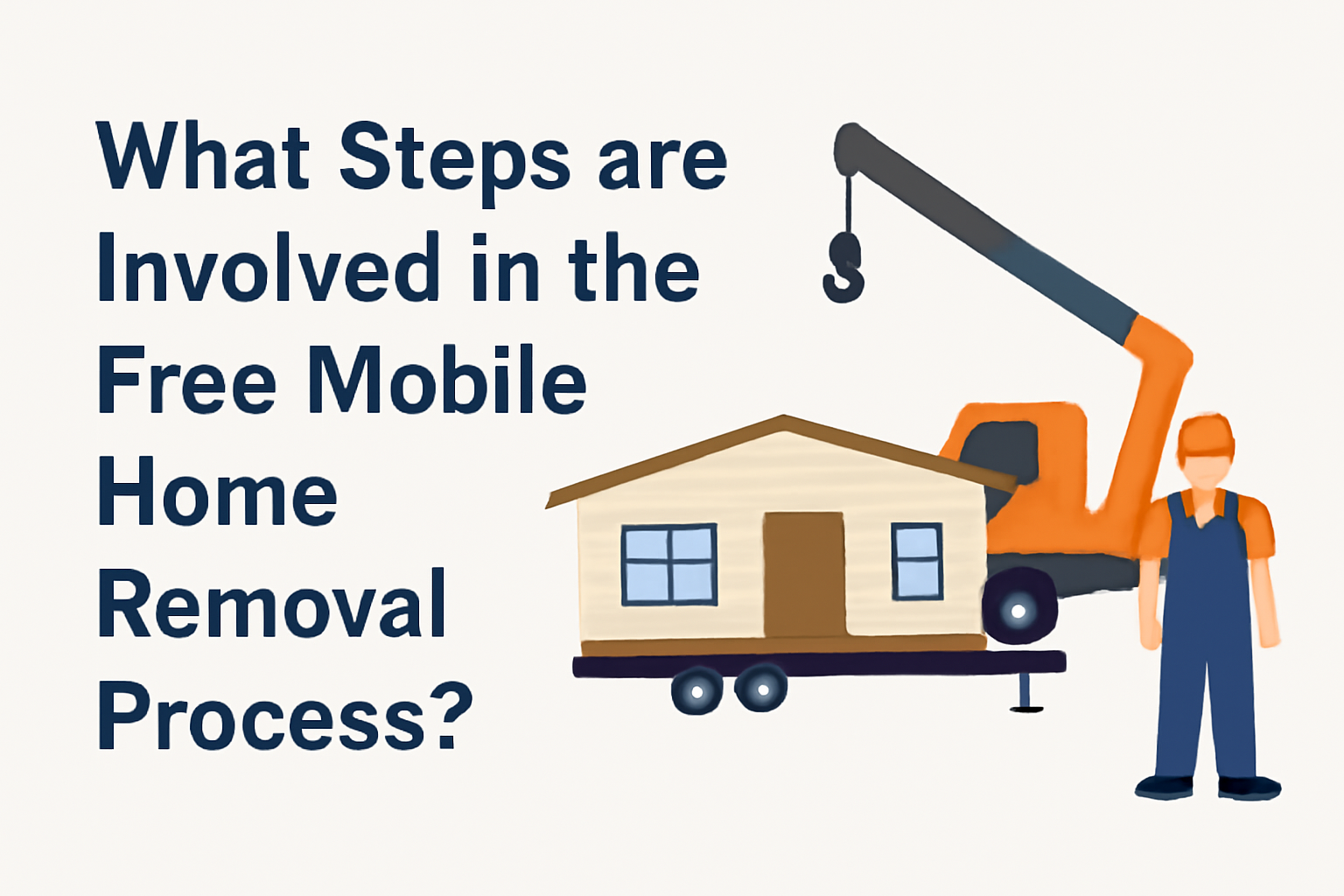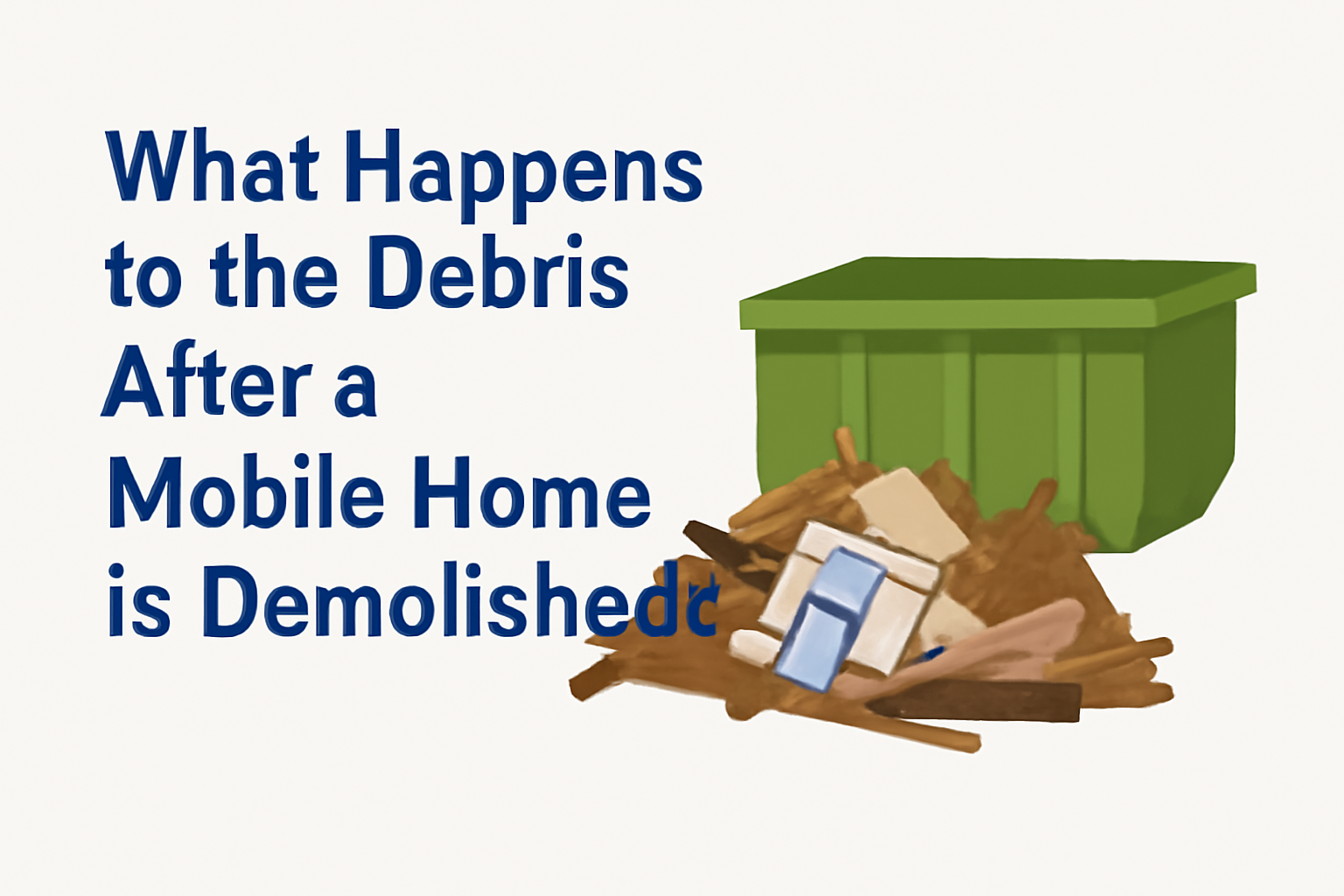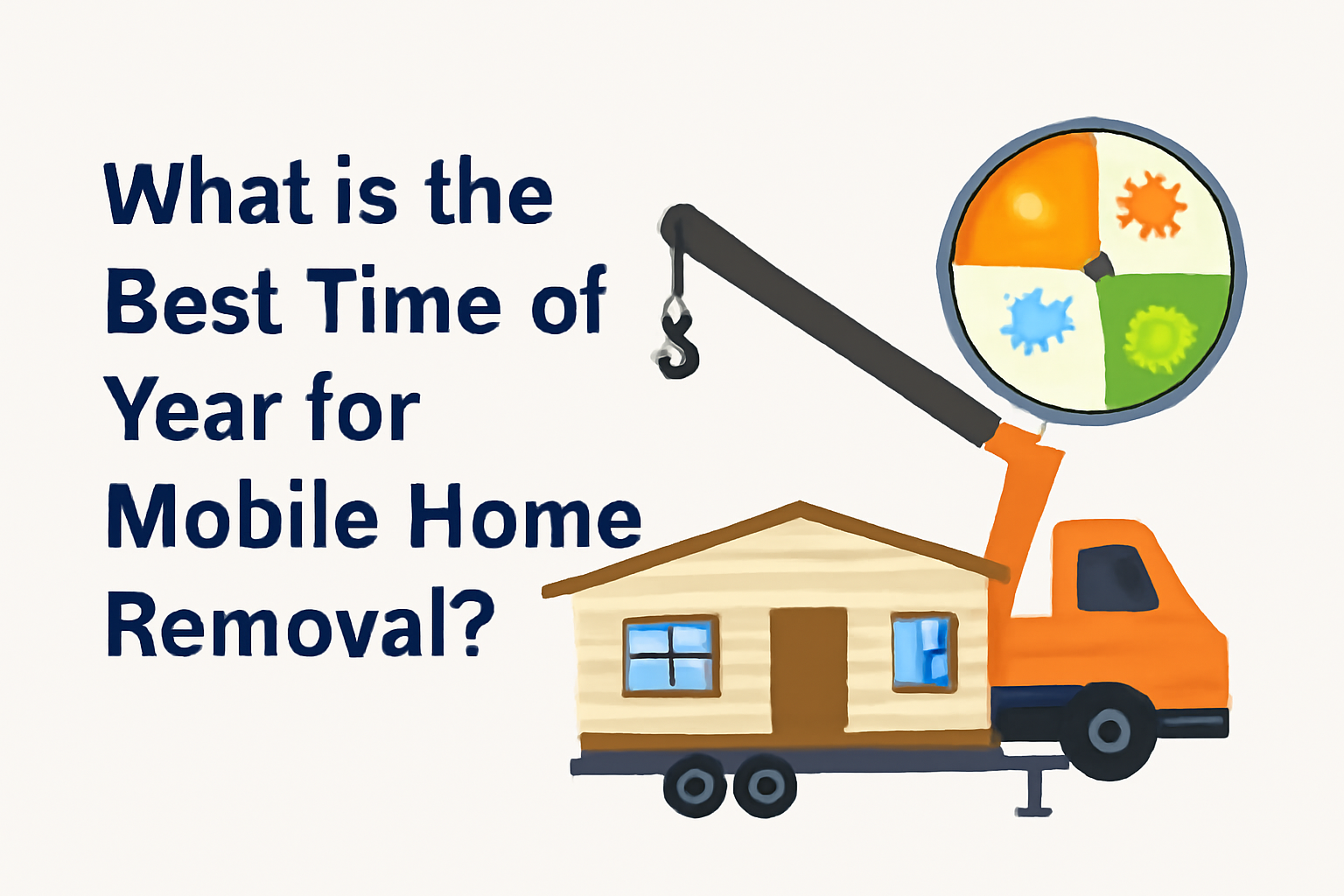Millions of people in the US live in rental portable properties because they are relatively inexpensive. However, just like any other building, such houses do last forever, especially if left unattended. So, what happens to old mobile homes for rent after they’re no longer habitable?
The components of a deserted movable house start breaking apart. This makes the living place too risky to use. You cannot even donate it to charity. That is why landlords, property managers, and community owners must figure out what happens to old mobile homes for rent after they’re no longer habitable.
Texas Mobile Home Removal is an expert in safely and quickly getting rid of all kinds of mobile homes, including old, broken, or no longer safe to live in ones. Our services help you get your area back and remain within the law, whether you are a landlord, park manager, or property owner.
The Lifecycle of a Rental Portable Residence
People, families, or expert workers often rent mobile properties because they are cheaper than other options. These buildings may survive for decades if they are regularly maintained. However, abandoned mobile homes for rent become unlivable due to:
- Adverse weather fluctuation
- Problems with the foundation
- Old utility systems
- Normal wear and tear
According to state’s regulations, a movable home cannot be leased out again after it is declared uninhabitable because of the possible reasons:
- Unsafe to live
- Structural deterioration
Landlords or park owners need to act now to safeguard their renters and remain within the law.
What Happens to Old Mobile Homes for Rent After They’re No Longer Habitable?
When a portable house is no longer helpful, property owners have a few options:
Demolition and Disposal
If you cannot save a mobile property, tearing it down is typically the safest and quickest solution. This means taking the unit apart and safely disposing of all the materials, such as:
- Wood
- Metal
- Insulations
- Hazardous garbage
Companies that specialize in mobile home removal ensure that the operation satisfies safety and environmental regulations.
Total Removal
Another suitable option is to take down the whole mobile house. In this scenario, the building is carefully taken apart or moved away from the site.
Doing so spares space for new buildings. It can also be used for a contemporary movable property. This is the most long-term and reasonable option for property owners.
Repurpose or Reuse Materials
If any piece of the mobile house is still usable, they may be saved and sold or recycled again. However, this all depends on the state of the house and the rules for getting rid of things in the area.
Get the best free mobile home removal services in Texas, US!
The Problem with Renting Out Abandoned Mobile Homes
Another problem is empty mobile homes for rent. These are apartments that previous tenants left behind in adverse shape, typically without following the conditions of their lease.
Such dwellings may fall apart rapidly and cause legal or safety issues. Property owners must fix or tear down these houses before they become a problem.
When you want to get rid of a deserted movable home, you must:
- Fill out legal documents
- Get authorized permits
- Undertake the project
Specialists accomplish all such relevant mobile home rental regulations. If you do, you may forget or break municipal rules and community standards.
Why Employ Professional Mobile Home Removal Services?
It is not easy to deal with an abandoned portable home. Proper preparation, following the law, the right tools, and the correct number of people are needed.
Professional mobile home removal firms ensure that each step of the process is done safely. This preserves property value and eliminates liabilities.
The Bottom Line
Comprehending what happens to old mobile homes for rent after they’re no longer habitable demands quick, practical action. The place may have become unsafe to live in. Hire experts to demolish these homes, regardless of whether they are old or abandoned. Contact Texas Mobile Home Removal to demolish your deserted portable property.


